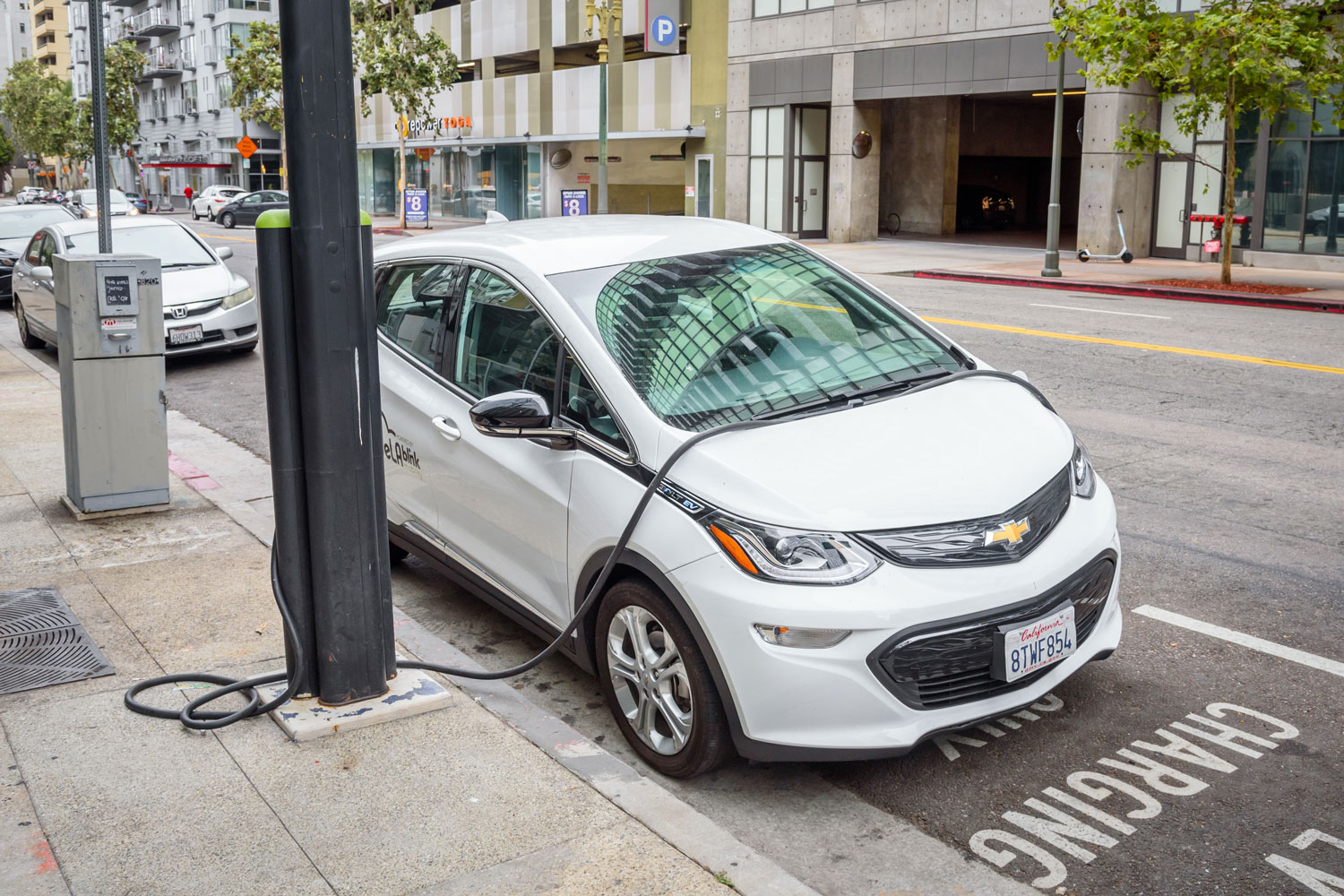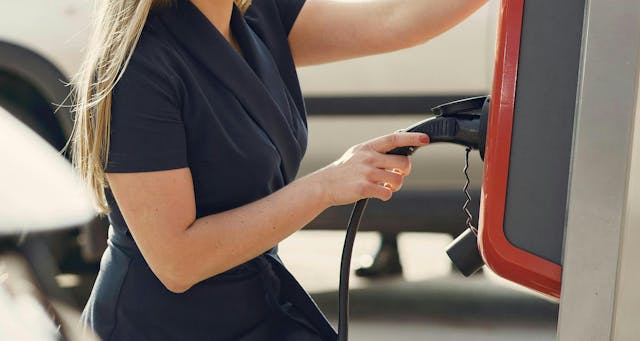Leading EV Charging Information: Trick Updates on Infrastructure and Technology

Current Advancements in Fast-Charging Modern Technology

Furthermore, developments in battery technology, including enhanced thermal monitoring systems and greater power thickness batteries, complement fast-charging capacities. These growths mitigate the threat of battery degradation during fast charging, making sure long life and efficiency for EV owners.
Furthermore, the assimilation of smart billing options is enhancing user experience, making it possible for real-time surveillance and dynamic rates designs. EV Charging news. This flexibility enables motorists to maximize billing times and expenses based upon grid need
As car manufacturers remain to purchase fast-charging networks, the cooperation in between industry stakeholders is essential. Collaborations between billing station suppliers and automotive suppliers are leading the way for substantial protection, eventually cultivating a much more durable EV ecosystem. These developments are critical in sustaining the transition to sustainable transport.
Federal Government Campaigns for Charging Growth
Federal government initiatives play an important role in the growth of electrical automobile (EV) charging infrastructure, facilitating the transition to sustainable transportation. Numerous government and state programs are being applied to enhance charging availability, minimize the financial problem on consumers, and promote the fostering of electric lorries.
Notably, the united state government has actually allocated substantial funding via the Framework Financial Investment and Jobs Act, which earmarks $7.5 billion for EV billing network advancement across the nation. This financing is targeted at deploying countless new billing stations, especially in underserved locations, thereby attending to range anxiousness among potential EV buyers.
In addition, countless states are passing regulation to enhance the permitting process for billing station installations, which is important for increasing release. Rewards such as tax credit scores and discounts for both consumers and organizations are likewise being introduced to urge the installment of charging infrastructure.
Moreover, public-private collaborations are significantly coming to be a focus, leveraging private investment to match government funding. These efforts underscore a joint approach vital for developing a reliable and detailed EV charging network, eventually adding to a greener and even more sustainable future.
Ingenious Battery Solutions Enhancing Effectiveness
Changing the landscape of electric vehicle (EV) modern technology, cutting-edge battery solutions are substantially boosting performance and efficiency. Developments in battery chemistry, specifically with lithium-sulfur and solid-state batteries, are leading to increased energy thickness, which enables longer arrays and faster charging times. These new battery types next page have the possible to outperform typical lithium-ion batteries by offering greater abilities while lowering weight, therefore boosting overall car effectiveness.
Moreover, developments in battery administration systems (BMS) are enhancing energy use and extending battery life-span. Smart algorithms monitor battery health and this content wellness and efficiency, making it possible for real-time changes to charging and discharging processes. This not just boosts the performance of the battery but also makes certain a more reputable and lasting power source for EVs.
Moreover, the assimilation of reusing technologies is resolving the ecological influence of battery manufacturing and disposal. Developments in second-life applications for EV batteries are facilitating their use in power storage space systems, contributing to a round economic situation.
As these ingenious battery remedies remain to develop, they promise to transform the EV market, making electric vehicles much more attractive and available to a wider target market while supporting global sustainability objectives.

Partnership Between Automakers and Billing Networks
Recognizing the critical requirement for a durable billing facilities, automakers are significantly collaborating with billing network service providers to boost the EV possession experience (EV Charging news). These partnerships intend to produce a smooth billing community that profits customers and supports the transition to electric lorries
Major auto brand names are joining forces with well-known billing networks to expand their billing terminal coverage, making sure chauffeurs have access to trusted and hassle-free billing alternatives. For example, partnerships with networks like ChargePoint and Electrify America permit car manufacturers to incorporate charging solutions straight into their automobiles' navigating systems, guiding customers to the nearest terminals and supplying real-time schedule updates.
Moreover, these collaborations commonly lead to the development of fast-charging innovations that dramatically decrease the time needed to recharge an EV. By pooling sources and experience, automakers and billing networks can introduce faster, developing remedies that fulfill the growing need for electrical flexibility.
Furthermore, joint initiatives may also lead to even more standard billing procedures, which can relieve consumer complication and advertise more comprehensive EV adoption. In general, these strategic partnerships are pivotal in building a easy to use and efficient charging framework that satisfies the needs of a broadening electrical lorry market.
Challenges Encountering EV Billing Framework
As the electric automobile market proceeds to expand, a number of obstacles are surfacing that hinder the growth of a detailed charging infrastructure. Among the key obstacles is the not enough number of billing terminals, especially in rural and underserved urban locations. This void creates range check stress and anxiety amongst possible EV customers, discouraging them from making the switch.
In addition, the absence of standardization in billing modern technology makes complex the facilities landscape. Variants in plug types and charging speeds can develop confusion for customers and raise functional intricacies for charging network drivers.
Another pressing concern is the high expense related to the installation and maintenance of billing terminals, which can be a barrier for both public entities and exclusive companies. Ultimately, governing hurdles and zoning restrictions can delay the implementation of billing infrastructure, hindering development in increasing vital services. Resolving these obstacles will be essential for promoting a robust EV environment that sustains the change to lasting transport.
Verdict
In conclusion, the continuous innovations in EV charging technology, sustained by substantial government efforts and ingenious battery remedies, are essential for the growth and performance of electric automobile framework. Collaborations between car manufacturers and billing companies additionally enhance terminal coverage, dealing with the growing need for available billing alternatives. Despite difficulties that continue within the EV billing landscape, these advancements symbolize a positive trajectory in the direction of a much more sustainable and effective electrical automobile ecological community.
Advancements in charging facilities have led to the growth of ultra-fast chargers capable of providing up to 350 kW of power, considerably minimizing billing times. Variations in plug types and billing speeds can develop complication for customers and boost operational intricacies for charging network drivers.In conclusion, the ongoing innovations in EV billing technology, sustained by considerable federal government efforts and cutting-edge battery options, are vital for the expansion and performance of electrical lorry facilities. Cooperations in between car manufacturers and billing suppliers better improve terminal coverage, dealing with the expanding demand for easily accessible charging options. Despite difficulties that persist within the EV charging landscape, these developments signify a favorable trajectory in the direction of an extra effective and sustainable electrical car ecological community.